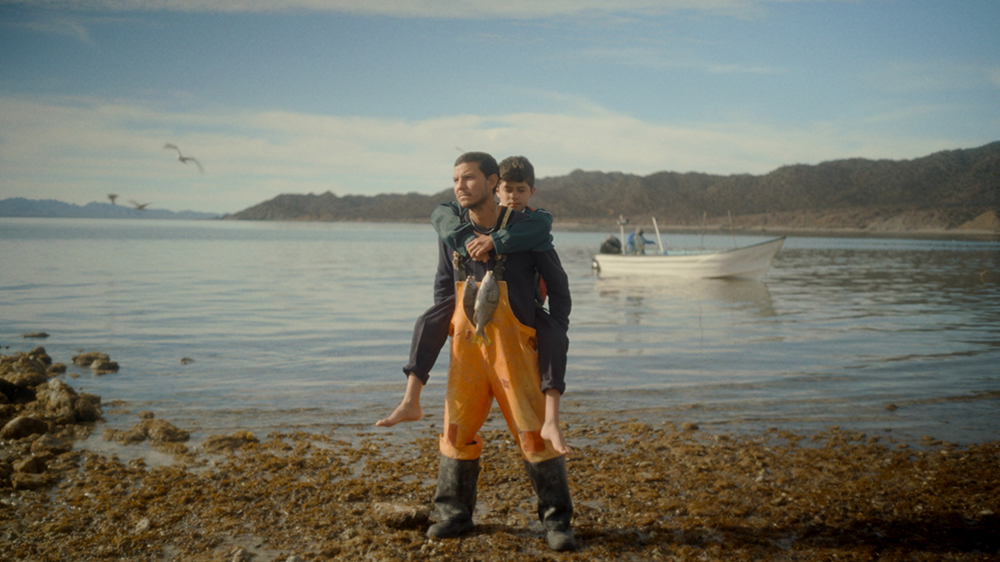Cannes’ Critics’ Week presents Morelia shorts
In collaboration with Mexico’s Morelia International Film Festival (FICM), Cannes’ Critics’ Week has presented four shorts by upcoming Mexican directors on Thursday: Daniela Silva Solórzano’s “The Things I Tell You”; “The Short Film” by José Luis Isoard Arrubarrena; “To Go Away and Come Back” by José Permar: and “A Hand Beneath the Snow” by José Esteban Pavlovich.
“We started by presenting Critics’ Week’s films at our festival, because it’s an important section for Mexico. That’s where Guillermo del Toro and Alejandro González Iñárritu were first discovered,” explains FICM’s director Daniela Michel.
Since 2005, Mexican shorts have been travelling to Cannes, too.
“We have been very, very lucky to have this collaboration. It has also strengthened our relationship with Critics’ Week. Since last year, we have also been a part of [workshop] Next Step,” she adds, opening up about this year’s selection.
“These films show the diversity and the variety of Mexican voices. All these filmmakers come from different parts of the country – it’s not all about Mexico City. It’s such a rich country and these are very different stories.”
In “The Things I Tell You,” Daniela Silva Solórzano focuses on short, intense relationships in a world where texting and dating “make us feel free and vulnerable.”
“I love directing films where I can involve my own experience,” she says.
“I had a hard time seeing myself in this film for the first year after making it. I kept it in storage, unable to understand what had happened. [But] it’s good to feel things and show them.”
Interested in mixing different visual formats, this time she turned to Instagram, texts or voice notes.
“I wanted to create a virtual world my friends could relate to. For a few months, I filmed everything, sent hundreds of messages and experienced emotions under the spell of making a film.”

“The Things I Tell You”
Courtesy of Critics’ Week
José Permar also goes up close and personal in “To Go Away and Come Back,” based on the memories of his mother when she was in an artificial coma.
“In Mexico, small, intimate stories and big ideas with ambition for social change are coexisting. After the pandemic, many filmmakers started to make films in a more ‘introvert’ way,” he states, recalling difficult experiences that ultimately resulted in the film.
“I felt helpless and there was a feeling of guilt: I wasn’t able to be there or to do more for my mother. I was unable to travel back, because of closed borders, and I felt useless. Making this was the only way to do something and, little by little, it became a way to build a new kind of intimacy with my family.”

“To Go Away and Come Back”
Courtesy of Critics’ Week
For “A Hand Beneath the Snow,” about a fisherman investigating his twin brother’s death, José Esteban Pavlovitch referred to two images that kept roaming inside his head. A man who looks at himself, being dead. A man who sees snow for the first time. All the while touching upon such topics like dug violence, corrupt military institutions and children turned into hitmen.
“That being said, it’s still a universal story. It talks about loss, grief, blood ties and human dignity. Genre-wise, I feel there is an essence of Western, which blends perfectly with the landscape of my home,” he says.
“For me, characters and landscapes have the same importance. I worked closely with my cinematographer J. Daniel Zúñiga to find the visual language of the film. These 360-degree shots, like the initial sequence, [served] as a tool to explore the surroundings and the inner world of the character.”
José Luis Isoard Arrubarrena, behind “The Short Film,” also embraced his protagonist’s inner life: a trans actress (Luisa Almaguer) who finds herself struggling on and off set.
“There is an ugly history of trans portrayal in cinema and it results in very little opportunities for actresses and other industry professionals. Almost all of Luisa’s [previous] parts were of sex workers,” he notes. Admitting the film was shot over the course of two days in his flat.

“The Short Film”
Courtesy of Critics’ Week
“I’m not always a great filmmaker but I’m lucky enough to be very prolific,” he laughs.
“We are very happy that the themes of this short have been catapulted to Cannes. If a young trans person ends up watching it, we hope it will [open up the world of] complex, beautiful and dignified representation.”
“In my experience, sets are better if there is diversity. Diversity in gender, ethnicity, age, skin color, sexual orientation. I hope this becomes common practice soon and [stays this way] forever.”
“Our society has opened a lot, overall. There is this vibrant energy in Mexican cinema right now,” adds Daniela Michel. Also mentioning more female filmmakers – “they are winning at festivals, like [Salvadoran-Mexican] Tatiana Huezo, and delivering fantastic work” – and international successes of local filmmakers that have energized the whole industry.
“The prominence of ‘Three Amigos’ [Iñárritu, del Toro and Alfonso Cuarón] is huge and they have been very supportive of young filmmakers. But many of these upcoming directors are not necessarily thinking about going to Hollywood. People are finally realizing they can make films at home and have a career here.”
The 21st edition of the Morelia International Film Festival will take place over Oct. 20–29.

